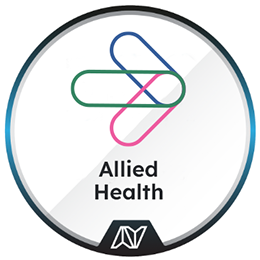
minutes average completion time
An Introduction to Allied Health
In this micro course, we will introduce you to the careers available in Allied Health and the different roles and settings they are exposed to. We will also look at just a few of the exciting opportunities and careers that exist within this field.
Introduction to Allied Health
Allied Health Care Professionals work across a wide range of health and social care settings including hospitals, community centres, care homes and residential homes.
Their core approach is focussed on prevention, diagnosis, treatment and rehabilitation and AHP’s are vital in promoting patient independence and improving quality of life.
Some of the jobs that fall within Allied Health care include:
Art Therapist – Art Therapists use art as a medium to address emotional issues which may be confusing and distressing.
Drama Therapists – Drama Therapists use role play, voice work, movement and storytelling to help people explore and solve personal and social problems.
Music Therapists – Music Therapists use the power of music to help people deal with feelings they cannot put into words.
Dietitians – Dietitians translate the science of nutrition into everyday information about food and advise people on their food and nutrition choices.
Occupational Therapists – Occupational Therapists help people lead their best lives. They help people with mental and physical health needs and learning disabilities do things they want and need to in everyday lives.

Operating Department Practitioners – Operating Department Practitioners are highly skilled members of the surgical team providing expert care and support during operations in theatres. Flexible and adaptable their skills are also being valued in critical and emergency care and playing a team role in organ transplant services.
Osteopaths – Osteopaths are experts in the musculoskeletal system. They detect, treat and prevent health problems by moving, stretching and massaging a person’s muscles and joints.
Paramedics – Paramedics are best known for their blue light ambulance responder skills in emergency pre-hospital settings. They also work in the community, urgent, primary, and secondary care, and play an important role in public health.
Physiotherapists – Physiotherapists help people affected by injury, illness or disability and frailty through movement, exercise, manual therapy and advice. They enable people to improve their physical health and activity and play an important role in public health.
Podiatrists – Podiatrists treat and care for people whose feet and lower limbs have been affected by injury or illness.
Radiographers (diagnostic & therapeutic)
Diagnostic radiographers use advanced imaging equipment to look inside a person’s body to help diagnose and understand an illness or injury. They use communication and patient care skills to help achieve high quality images of human body. Therapeutic radiographers use complex and advanced equipment to plan and deliver radiation treatment to treat cancer patients. They support patients throughout their radiotherapy treatment pathway.
Speech and Language Therapists – Speech and Language Therapists provide life-changing treatment, support and care for children and adults who have difficulties with communications, eating, drinking and swallowing.
The core approach of an Allied Health Care Professional is based on prevention, diagnosis, treatment and rehabilitation…

Did you know?
The average base pay salary for Allied Health Careers in 2024 was £31,000 to £43,000
Make a note
Which Allied Health Professional specialises in diagnosing and treating foot and lower limb problems?
A closer look at Paramedics
A paramedic provides emergency medical care to individuals in critical or life-threatening situations.
These skilled professionals are often the first responders to accidents, medical emergencies, and other crises. Paramedics undergo rigorous training that includes anatomy, physiology, pharmacology, and emergency medical procedures. They are equipped to assess a patient’s condition, provide on-the-spot treatment, administer medications, perform advanced life support techniques such as intubation and defibrillation, and safely transport patients to hospitals for further care.
Paramedics play a vital role in the pre-hospital care system, stabilising patients and ensuring they receive prompt and appropriate medical attention during emergencies, potentially saving lives and improving outcomes.
To become a registered Paramedic you need to gain a degree in Paramedic Science. However, there are other routes into becoming a paramedic.

Some applicants start work as an Emergency Care Assistant who will work with Paramedics to gain experience. They can then choose whether they want to continue their work or enrol into a University programme to become a Paramedic.
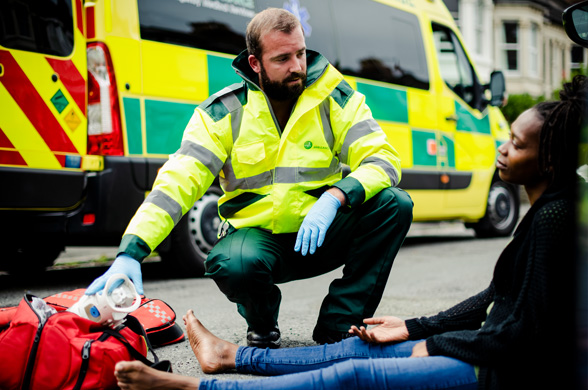
A closer look at Radiographers
Radiographers take scans of patients to diagnose and treat illnesses and injuries.
As a diagnostic radiographer, you could:
- Interpret images of the body to diagnose injury and disease such a broken bones
- Screen for abnormalities
- Take part in surgical procedures like biopsies
As a therapeutic radiographer, you could:
- Work closely with medical specialists to plan treatments
- Use x-rays and other radioactive treatments to treat cancers and other illnesses
- Assess and monitor patients through treatment and follow-up appointments
To become a radiographer, you will need to obtain a degree approved by the Health and Care Professions Council. You can also train to be a radiographer through joining one of the Armed Forces.
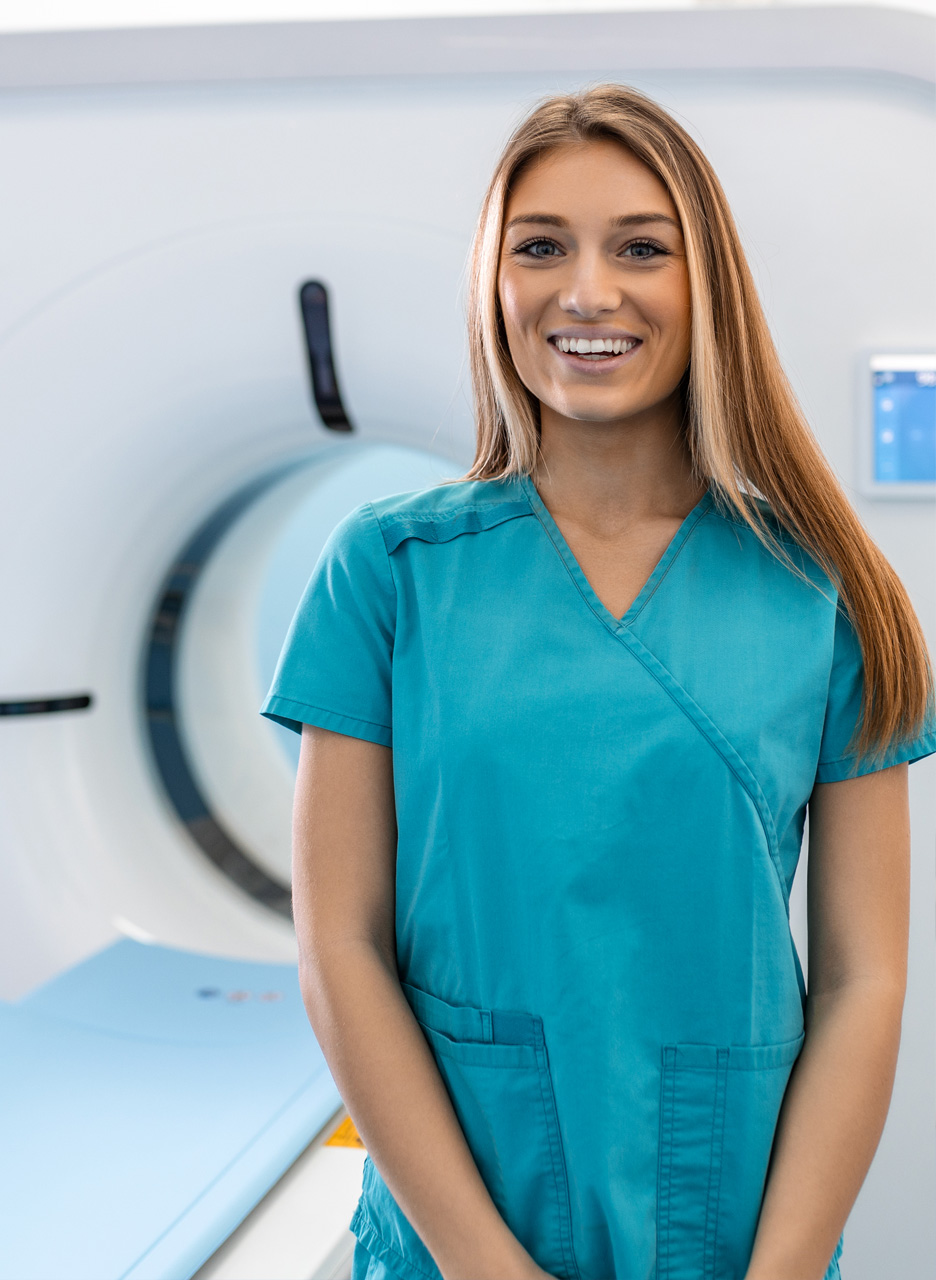
A closer look at Occupational Therapist
Occupational therapists are responsible for empowering patients to participate more fully in daily tasks when their ability is compromised by a health condition.
Occupational therapy is medically prescribed and involves skilled evaluation, treatment, and discharge.
Occupational therapists help people learn or re-learn the tasks that are necessary for healthy, meaningful, day-to-day living. These are referred to as “occupations” and include:
- Basic self-care activities like dressing and bathing
(called activities of daily living) - Rest and sleep
- Education
- Work
- Play
- Leisure
- Social participation
- Health management
Some of the health management skills an occupational therapist might help with include:
- Managing own medication
- Eating well
- Engaging in physical activity
- Social and emotional well-being
- Managing or coping with symptoms
- Communicating and working with healthcare providers
- Learning to use medical devices such as a wheelchair
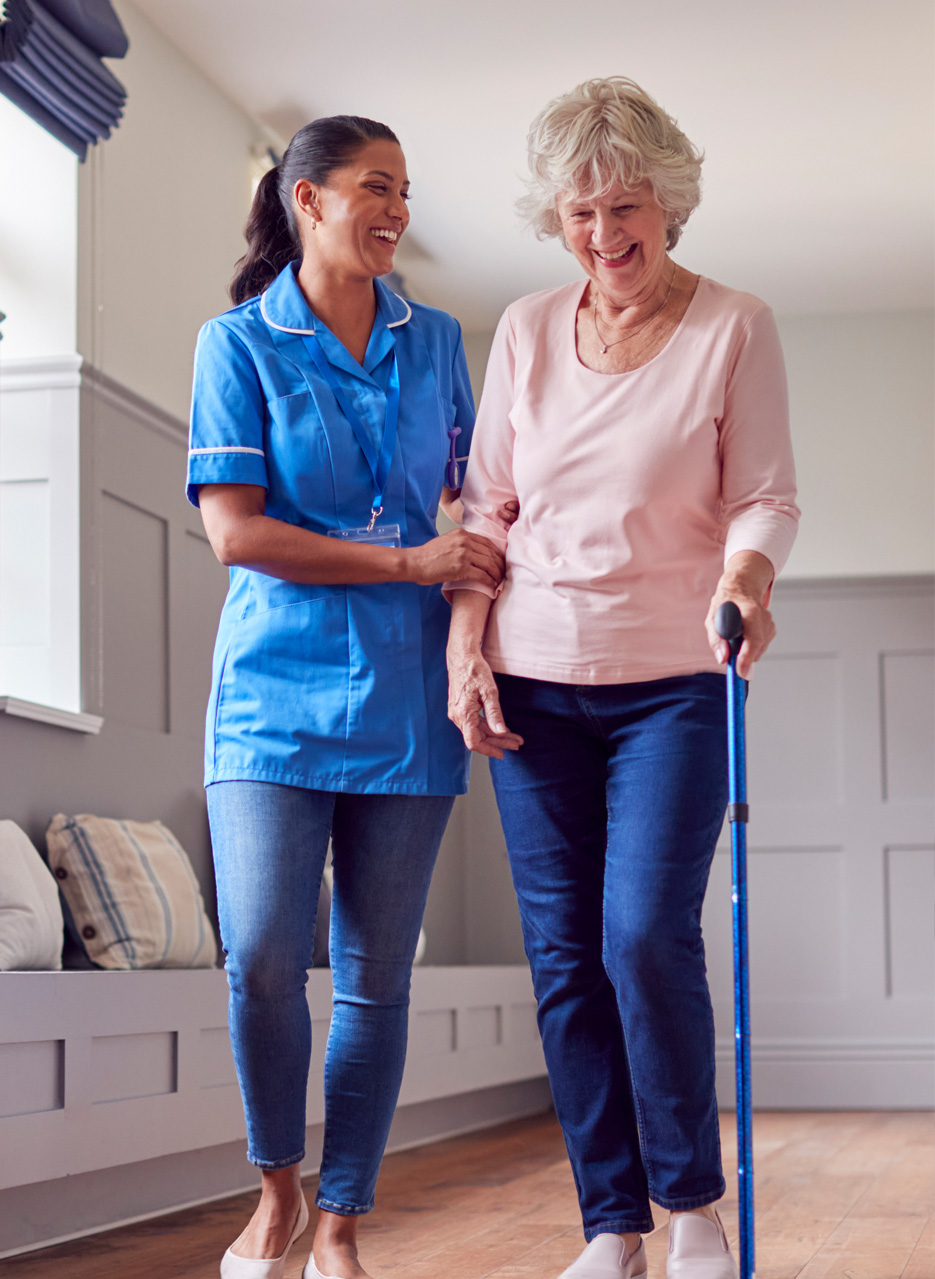
As with most healthcare roles, the role is varied and you could be doing very things with different people every day. To be an Occupational Therapist, you would need to gain a degree approved by the Health and Care Professions Council.
Did you know Occupational Therapists work on the idea that we have 8 senses and not 5? Listed below are the usual ones that we learn about as a child.
- Taste
- Touch
- Smell
- Sight
- Hear
However, we have an extra 3 senses which Occupational Therapists use to assess patients in their care. These are:
- Vestibular system – this contributes to our awareness of our bodies in spaces
- Interoceptive system – this contributes to the sensations of the physiological/physical condition of the body.
Interoceptors are internal sensors that provide a sense of what our internal organs are feeling such as hunger or thirst. - Proprioceptive system – this contributes to the position, location, orientation and movement of the body’s muscles, tendons and joints.
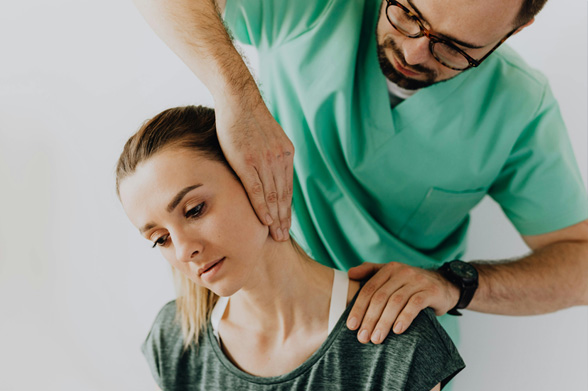
Did you know Occupational Therapists work on the idea that we have 8 senses and not 5?
Potential salaries and career pathways
In the UK’s NHS, salaries for Allied Health Professionals (AHPs) are typically aligned with the Agenda for Change (AfC) pay system, which categorises roles into different bands based on responsibility, experience, and qualifications.
Below is a general guide to the salary bandings for the
15 AHPs:
Entry-Level Roles (Bands 5–6)
- Most AHPs begin their NHS careers at Band 5, which is the starting level for newly qualified professionals.
- Progression to Band 6 usually occurs after gaining experience or taking on additional responsibilities.
Salary Ranges (as of 2023–24):
Band 5: £28,407–£34,581
Band 6: £35,392–£42,618
Specialist and Advanced Roles (Bands 7–8a)
- As AHPs take on specialist or advanced roles, such as team leaders or advanced practitioners, they move into Band 7 or higher.
Salary Ranges:
Band 7: £43,742–£50,056
Band 8a: £50,952–£57,349

Consultant-Level Roles (Bands 8b–8c)
- Consultant AHPs or those with significant leadership roles (e.g., managing departments or leading innovations in care) may progress to Band 8b or 8c.
Salary Ranges:
Band 8b: £58,972–£68,525
Band 8c £70,417–£81,138
To become an NHS Allied Health Professional (AHP), specific qualifications and registrations are required depending on the profession.
Here’s an overview of the general qualifications and pathways:
General Requirements for All AHPs
1. Relevant Degree or Diploma
Most AHP roles require a degree accredited by the Health and Care Professions Council (HCPC). Some roles may also accept equivalent diplomas or postgraduate qualifications.
2. HCPC Registration
All AHPs must register with the HCPC to practice legally in the UK. This involves meeting standards for education, training, and professional skills.
3. Work Experience (recommended)
Many courses and employers value work experience in healthcare or related fields, which can be obtained through volunteering, internships, or placements.
4. Additional Skills
Communication, teamwork, and problem-solving skills are essential across all AHP roles.
Alternative Routes and Apprenticeships
Many professions now offer NHS degree apprenticeships allowing students to “earn while they learn” by combining academic study with on-the-job training.
Assistant roles (e.g., Physiotherapy Assistant, Dietetic Assistant) provide a pathway into full qualification, often supported by employers.

All AHPs must register with the HCPC to practice legally in the UK. This involves meeting standards for education, training, and professional skills.
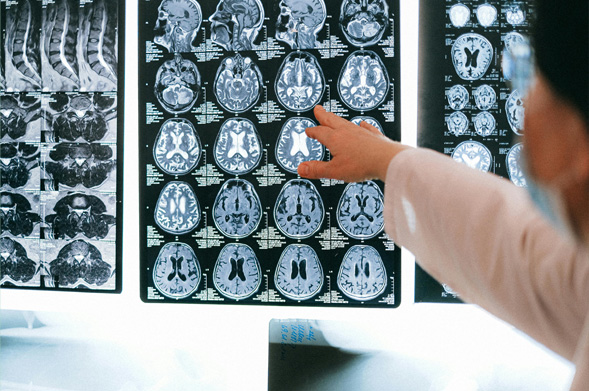
Check Your Knowledge
So now you’re well on the way to understanding about Allied Health, answer the multi-choice questions below to see how much you really know.
Good luck!
Well done. You have successfully achieved the pass mark for this course. All the correct answers are now shown.
You haven’t achieved the pass mark on this occasion. Have another go.
You haven’t quite reached the pass mark for this course, but all of the correct answers are now shown. Please study these before moving on, or feel free to go back and look again at any of the pages of this course.
Congratulations
You have successfully completed this course.
Exit Course
